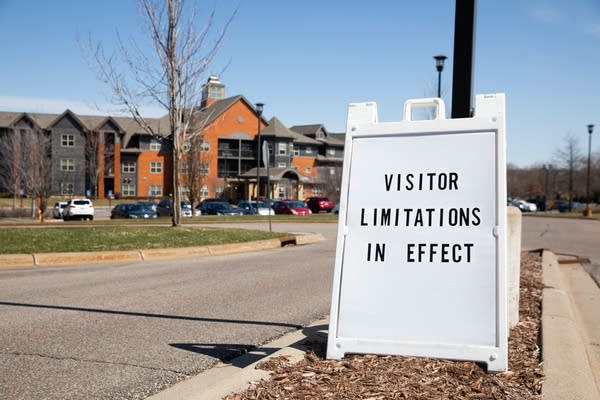Nursing homes on the front line of limiting coronavirus spread among Minnesotans

A sign sits in the driveway of Johanna Shores senior living to warn visitors about restrictions due to COVID-19 in Arden Hills on Sunday. More than half of the Minnesotans who died from the respiratory illness lived in group care facilities. As of Monday, there are 90 residents and 36 staff in long-term care facilities with confirmed COVID-19 cases.
Evan Frost | MPR News
Go Deeper.
Create an account or log in to save stories.
Like this?
Thanks for liking this story! We have added it to a list of your favorite stories.


